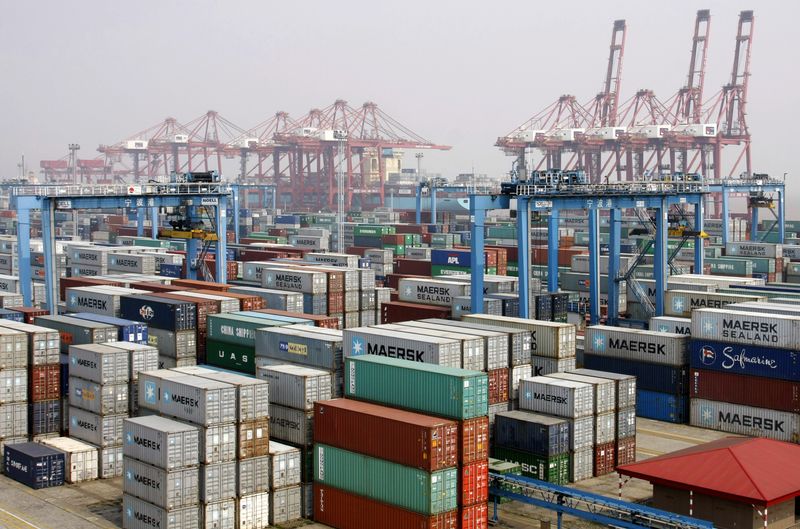By Andrea Shalal
WASHINGTON (Reuters) - The United States will use restrictive tools like tariffs to push back against China's practice of making far more goods than it needs in order to dominate global markets, White House official Daleep Singh said on Thursday.
Singh, deputy national security adviser for international economics, said the Asian giant has amassed growing market power that it uses for economic and geopolitical leverage, and Washington viewed the costs as unacceptable.
"So that's the problem, and it's not abstract. You can see it in the numbers," Singh told an event hosted by the Alliance for American Manufacturing. "They're a big outlier and we've got to do something about it."
Beijing and Washington have had tense relations for years due to multiple issues ranging from trade tariffs and the origins of COVID-19 to human rights, intellectual property and Taiwan. Singh gave no details on any new measures being considered by Washington.
Data showed that China had a significant overcapacity relative to projected demand for electric vehicles, batteries or semiconductors, Singh said, noting that Chinese producers were reporting "persistent losses."
"We're seeing an unrivaled level and rate of growth in China's subsidies, and ... forget about the numbers, look at their public pronouncements to dominate key sectors and diffuse them with military pre-eminence," Singh said at the event, a week before finance officials from around the world gather in Washington for the annual meetings of the International Monetary Fund and World Bank.
Singh said that "a growing number of countries", including Brazil, India, South Africa and the European Union, were starting to see industrial overcapacity as a major problem like the U.S. did, adding China was using production to gain dominance in a number of sectors.
"China is flooding strategic sectors with supply that's well beyond what global demand can plausibly absorb, and therefore wiping out the competition," he said.
He said China had long used the same tactics for two decades to gain dominance in steel and solar and medical devices, but the trend was now "broadening and intensifying" to include electric vehicles, batteries and semiconductors, where Washington has been investing heavily.
Washington has previously said the U.S. may need to take further and "more creative" actions beyond tariffs to protect U.S. industries and workers against China's growing excess industrial capacity.

U.S. Treasury Secretary Janet Yellen, speaking at a separate Council on Foreign Relations event in New York, said every province in China is competing to try to invest more in advanced manufacturing sectors, such as clean energy and semiconductors.
"So the level of subsidization is utterly enormous. There are many profit-losing firms that are kept in existence. And so there is a gigantic amount of overcapacity that is threatening our own attempts to build in these areas," she said.